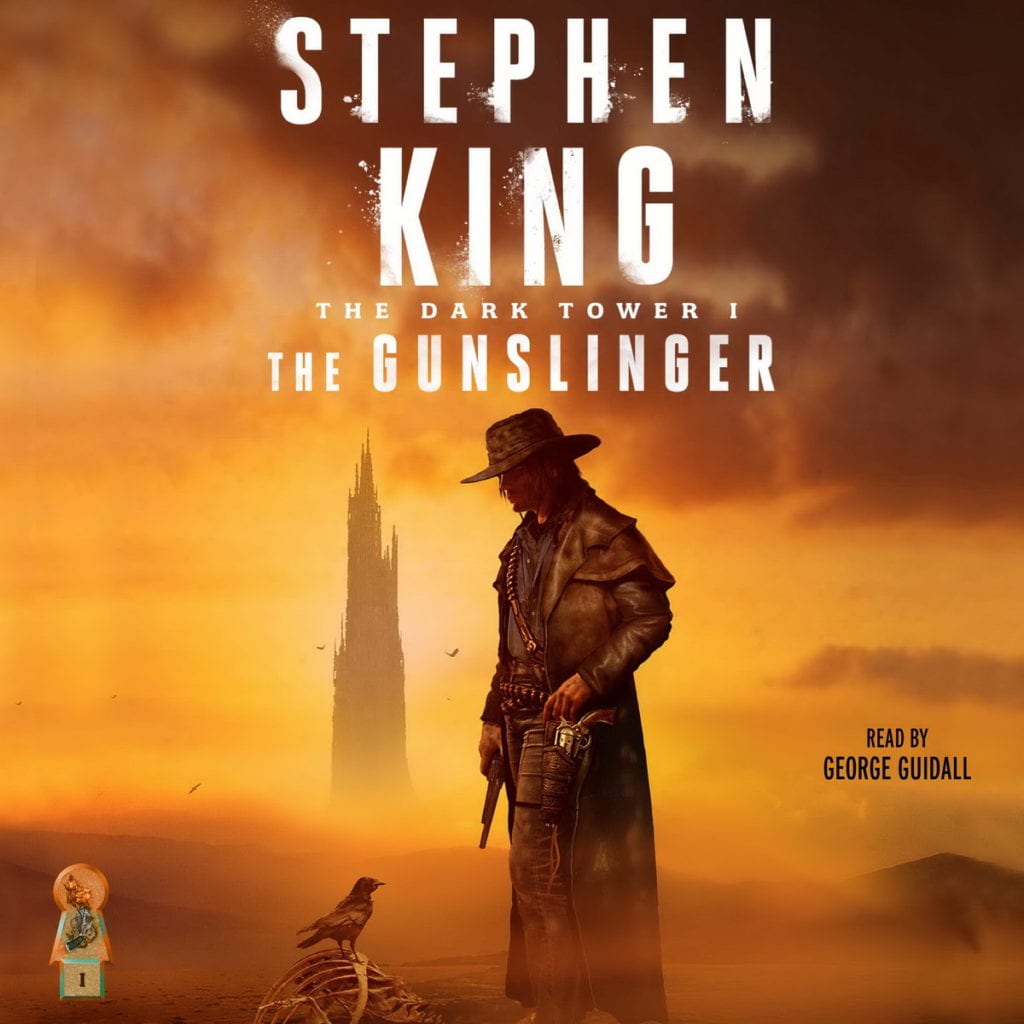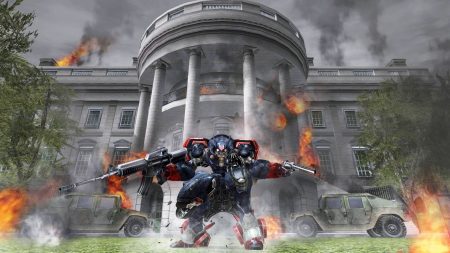A Battle of Light and Dark
Stephen King needs no introduction. Under his authorship, King has published a range of acclaimed books, from Carrie to Mr. Mercedes. Many of these books have even gone on to inspire movie adaptations, including classic hits like The Shawshank Redemption and modern ones like the just-released re-imagining of It.
While primarily a horror writer, King has provided numerous works proving his worth outside of the genre. The Body (on which Stand By Me was based) and 11/22/63 are just two examples of many. No matter the genre, no matter the subject matter, King always manages to excel at crafting compelling worlds and realizing layered characters. It’s this versatility and dependability that have ultimately made King a household name.
The Gunslinger is perhaps the greatest example of King’s multi-faceted writing ability. Published in 1982 as King’s twelfth novel, The Gunslinger was not only one of King’s earliest books but also one of his most nontraditional. The first in an eight-book series labeled The Dark Tower, The Gunslinger serves as King’s first foray into the world of fantasy.
Earlier this summer, a movie adaptation of King’s epic series, titled simply The Dark Tower, hit theaters. Despite its strong cast, comprised of Idris Elba and Matthew McConaughey, the movie released to poor reviews from critics and fans alike. In honor of the original series, I decided to go back and read The Dark Tower for the very first time. The following is my review of the first book in the series.
The Tale of Roland of Gilead
The Gunslinger opens with a sentence as gripping as any in modern literature: “The man in black fled across the desert, and the gunslinger followed.” While poetic by itself, the line effectively sets the stage for the book’s primary conflict. Roland Deschain, the last gunslinger, is in pursuit of a mysterious sorcerer known only by the color of his clothing.
King immediately crafts a unique setting in the desert of The Gunslinger, a desolate wasteland far removed from the amenities of modern society. Over the course of his journey to find the elusive man in black, Roland encounters a man corrupted by a drug known as “devil-grass,” befriends a physically and emotionally scarred woman named Allie, and protects a young, otherworldly boy named Jake.
The story of The Gunslinger is compelling in large part thanks to King’s sharp, succinct writing. Chapters fly by as Roland travels the sun-scorched land, meeting strangers and making his way to his eventual goal. Unlike other fantasy writers like George R. R. Martin or J. R. R. Tolkien, King chooses to focus on plot before world-building. The Gunslinger lacks a lot of the lore of traditional high-fantasy books, leaving much of the world’s history and geography up to readers to infer and piece together.
I found this to be a great decision by King, who, as of 1982, had no real experience writing fantasy. Avoiding the fluff that plagues most books of the genre, King grabs readers immediately and refuses to relent — there simply is no time for breaks with The Gunslinger.
That isn’t to say that there aren’t traditional elements of fantasy within the book. A series of flashbacks for Roland, in particular, provides a secondary narrative providing critical insight into Roland’s upbringing and motivations. However, in general the events of The Gunslinger are lean and focused, reading more like an action-thriller than a true fantasy epic.
Of course, as expected from King, there are also moments of genuine horror laced in throughout, for good measure. While not a huge part of the narrative, the stylistic choice to lean in on shock and horror gives The Gunslinger even more of a unique flavor in what is an increasingly competitive genre.
The Gunslinger and All of His Wounds
While The Gunslinger kept me entertained throughout its brisk two- to three-hundred page run, it shows some definite rough spots along the way. Although well-written for the majority of the novel, several chapters stood out as obtuse and overwrought by comparison, namely those focusing on a forest-dwelling oracle and mutant-infested mine shaft near the end of the book. The flow of King’s writing comes to a sudden halt at these rare but severe instances, and I couldn’t help but wonder if these pages deserved another run through the editing process.
Thankfully, the book has received several revisions by King over the years, and the current 2003 version is a huge improvement over the 1982 one. That said, many of the pain points found in 1982 persist today, and it’s a shame, because they hurt what is otherwise a strong and well-plotted narrative.
The other big part of The Gunslinger that I found disappointing is its letdown of an ending. For a book that establishes and builds such great tension between the gunslinger Roland and the man in black, their eventual encounter near the end of the book leaves much to be desired. While several interesting plot threads stem from their meeting, the lack of a conclusive ending to their relationship left me feeling a bit slighted. It was as if King had the opportunity to provide closure, but chose not to, simply because he knew he’d be writing a second book.
I can respect this decision by King, but I certainly do not agree with it. Judging The Gunslinger based on its individual qualities alone, the ending leaves great potential for a meaningful showdown completely on the table. It elicited little emotion from me, and perhaps even worse, left me on dubious terms with the protagonist due to the circumstances leading into the novel’s final chapter.
Final Thoughts
As a whole, I appreciated The Gunslinger for its sharp writing and streamlined approach to fantasy writing. At the same time, I found myself struggling with several sections in the latter half of the book, especially the ending.
While disjointed and uneven, I recommend The Gunslinger. Its characters and action should satiate even the most hungry of action-thriller fans, while also pleasing those seeking an unorthodox take on the fantasy genre. Even for those with no intention of reading past this first book, there’s plenty to like with what’s here.
And for those who have committed to reading The Dark Tower through from beginning to end? I have a feeling that the best is yet to come.
Score: 7.6/10
David is the founder of The Punished Backlog. He has a problem finishing games he starts.
Just beat: Donkey Kong Bananza.
Working on: Hollow Knight: Silksong.
Can't wait for: Metroid Prime 4: Beyond.
Follow David on Twitter at @David_Silbert to keep up to date with all things The Punished Backlog.











